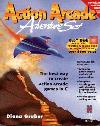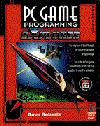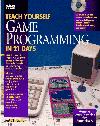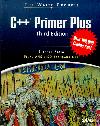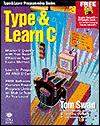 Type and Learn C by Tom Swan
Type and Learn C by Tom Swan
After I bought a computer for myself, I wanted some way to learn C.
The language reference manuals at the community college was no good for
a beginner so I decided to buy this book. I think the main reason
for choosing this book was that it came with Turbo C++ Lite compiler so I
could try out the examples without having to purchase Turbo C++.
I eventually did buy a copy of
Turbo C++ 3.0 for DOS
and is what I use to write my DOS Game Library files today.
Moving from QBasic to C by Greg Perry In the beginning, I used Microsoft Basic on a
TRS-80 Color Computer 2
. Later, I learned
6809
Assembly language programming to write some extremely fast and tight code for the CoCo.
Later, I moved on to using PC's. Since I new only BASIC and Assembler
from the CoCo, I naturally took to QBasic for MS-DOS. Finding it limiting, I knew that
I needed to learn something else. C was the most popular, I thought, and since our
campus used Turbo C, I decided to learn that. This book was helpful for people, like
me, that knew a lot of QBasic and very little C. It's out of print now, but you may
still be able to find a copy somewhere.
After a while trying to trek out on my own writing games for the PC, I realized that I needed some help. When I saw that this book was available as a part of an introductory package to join the Small Computer Book Club , I bought it. The main thing that I do not like about this book is that it's mainly just a big FastGraph tutorial.
While video game concepts are definitely well documented,
overall I found that it would far too often tell you
something neat about the PC hardware and then tell you to
use some ' To its credit, though, using a game library as capable as FastGraph does shave off a considerable amount of time in game development. The book does come with a trial version of FastGraph and some code for some of the sample games using it that I managed to compile on my compiler of choice in 16 bit MS-DOS. Only to have to run it with a TSR because it is unregistered. So, I must warn you that if you decide to use FastGraph as your game programming library and distribute your games to the world at large, get ready to fork over $450+ to Ted Gruber. The book is currently out of print, but Diana has
graciously posted her manuscript on the web at
http://www.makegames.com/sidescroller/.
This book was also a part of the introductory package to Small Computer Books Club. Truthfully, I found that this book was very hard to follow when I first got it, so I would definitely wager that this book is not very helpful to a beginner in programming. You need advanced knowledge in C programming, as well as a fair amount of knowledge of the IBM PC hardware in order to fully utilize what the author has to offer in this book. I would say that it is best suited to advanced PC programmer's who are also studying Electrical Engineering Technology and the IBM PC hardware architecture. Since I am slowly but surely becoming as such a beast, I definitely find myself discovering new things out of this book, even today. It is certainly a great reference on the hardware technology used in the PC as well as how to utilize it to use Mode X graphics. This book explains how to scroll in Mode X as well as
how to use the Mode X split screen. It covers
hardware interrupts and PC devices used in video games
with much more detail than in Andre's famous book
(below).
By and far the best game programming book for
beginners that I have read so far. It teaches how
to use the linear mode (Mode 13H) to write fast action
games. It's a must have for anybody who wishes to
learn the basics of game programming on the PC. Too
bad it's out of print.
As good as the previous books that I mentioned are,
they are unfortunately out-of-date (not to mention out of
print). What? My page is out-of-date
too?!! Well, you're right, but I do enjoy using C++
more than C and Turbo C++ does support C++
programming. So why not use it to its full
power? In order to do that, I need a good reference
on C++ programming. This book is it. This
book covers C++ well and even mentions compatibility
issues between some of the various implementations (like
Borland's C++Builder, Microsoft's Visual C++, and the GNU
C++ versions). It's reference on the Incidently, Turbo C++ is not the only C++ compiler
that I use. The main C++ compilers I like to use
are Turbo C++ 3.0, DJGPP, Cygnus GNU C++, and Borland C++
Builder. All of these compilers (yes even Turbo
C++) do a very good job at supporting a lot of the
ANSI/ISO C++ standards. (Microsoft compilers,
including Visual C++, seem to choke on some of the more
advanced C++ techniques that are suppose to be standard
which is why I don't like to use it.) Teach Yourself... Assembler by Mark Goodwin This book is a beginner's reference to 8088 assembly language programming. Very good for a reference, I think, which is why I bought it. Helpful for when I come across some old assembler code and when I need to add some assembler code to my own programs. This book is out of print, but I am sure that you can find some reference to assembly somewhere if you really need it. In most cases, now-a-days, you don't. If you are serious about programming in Assembly language, I suggest the Netwide Assembler (NASM) which is very good and very free. |
